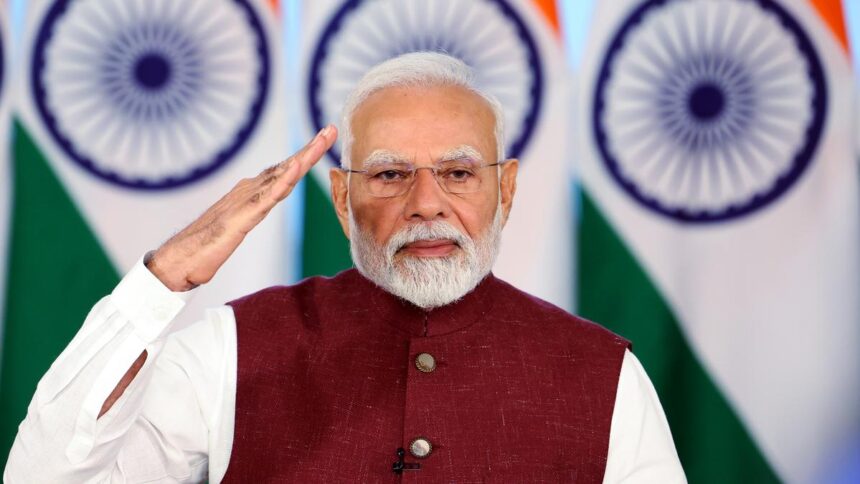Operation Sindoor has reset the rules of engagement between India and Pakistan. As Prime Minister Narendra Modi declared, it “has set up a new parameter and a new normal” in counter-terrorism policy. This shift marks a turning point in how India responds to cross-border terrorism and reshapes global expectations.
The Burden of Proof: Now on Pakistan
Historically, India has had to prove Pakistan’s involvement in every terror attack—despite overwhelming evidence like the 2008 Mumbai attacks. Even the Pahalgam terror strike in April 2025 saw the international community demanding proof from India while ignoring Pakistani complicity.
This shift aligns with India’s official doctrine on cross-border terrorism, which has emphasized zero tolerance and decisive response in recent years.
Operation Sindoor reverses this equation. Now, the onus is on Pakistan to prove its innocence. India has made it clear: any attack on Indian soil will be presumed to have been sponsored by the Pakistani military and its Inter-Services Intelligence (ISI). There is no longer any room for plausible deniability.
A Strategic Shift in Responsibility
This new doctrine also places a clear responsibility on Pakistan to prevent its territory from being used as a launchpad for terrorism. India has effectively declared that pushing terrorists across the border—especially as the snow melts—is an act of war that will carry consequences.
Zero Tolerance, Military Response as Default
The message from New Delhi is unambiguous: India will respond militarily to every attack. Operation Sindoor is not an isolated incident; it is the cornerstone of a permanent policy shift. Prime Minister Modi said it best: “Operation Sindoor is India’s policy against terrorism.”
Importantly, the operation has only been paused, not concluded. This signals India’s readiness for sustained military engagement if provoked again.
India’s earlier call for global recognition of religiophobia—especially targeting Hindus, Sikhs, and Buddhists—was formally raised at the UN General Assembly in March 2022.
Comprehensive Deterrence: Beyond the Battlefield
India’s strategy now includes economic and diplomatic tools. A key example is the Indus Water Treaty (IWT), which India has put on hold. India has declared that “water and blood cannot flow together”, linking the flow of rivers to the cessation of terror exports.
This signals that cross-border terror has tangible costs for Pakistan—costs that may increase if the status quo persists.
Religiophobia and the Unity of India
While terrorists aimed to create a communal divide by targeting Hindu tourists in Jammu and Kashmir, the response backfired. Indians across religions stood united. One Muslim civilian died trying to protect Hindu tourists, underlining India’s social cohesion in the face of terror.
This has reignited global conversations around religiophobia against non-Abrahamic faiths. India is expected to launch a stronger diplomatic effort to combat hate crimes against Hindus, Sikhs, and Buddhists on the world stage.
Nuclear Blackmail: A Bluff Called
Perhaps the most transformative impact of Operation Sindoor is India’s decisive rejection of Pakistan’s nuclear threat narrative. By striking targets inside Pakistan despite nuclear sabre-rattling, India has ended decades of restraint born out of nuclear fear.
The global double standard—arming Ukraine against nuclear Russia but preaching restraint to India—has been exposed. Modi’s assertion that “terrorist hideouts cannot hide under the nuclear umbrella” has redrawn the geopolitical map of South Asia.
Exposing the False Equivalence
Even in the face of Pakistani complicity, much of the international community continues to urge “de-escalation,” treating India and Pakistan as equal parties. This false equivalence—between a victim and a perpetrator—has been shattered by India’s targeted and transparent military response.
While the U.S. has tried to take credit for brokering a ceasefire, India has remained diplomatic but firm: this was a bilateral issue, handled on India’s terms. Any “exit ramp” offered to Pakistan by global powers is simply a fig leaf for Islamabad to step down.
Conclusion: Security, Sovereignty, and Strategic Autonomy
Operation Sindoor is not just about retaliating to one attack. It is about establishing India’s strategic autonomy and ensuring that national security is non-negotiable. This new normal is a signal to the world that India is ready to play a larger geopolitical role without being boxed into the regional South Asia paradigm.
With terror deterrence, military strength, economic tools, and global diplomacy working in tandem, India’s fight against cross-border terror has entered a new and irreversible phase.
Also Read: Rajnath Singh Questions Pakistan’s Nuclear Safety, Seeks IAEA Supervision


